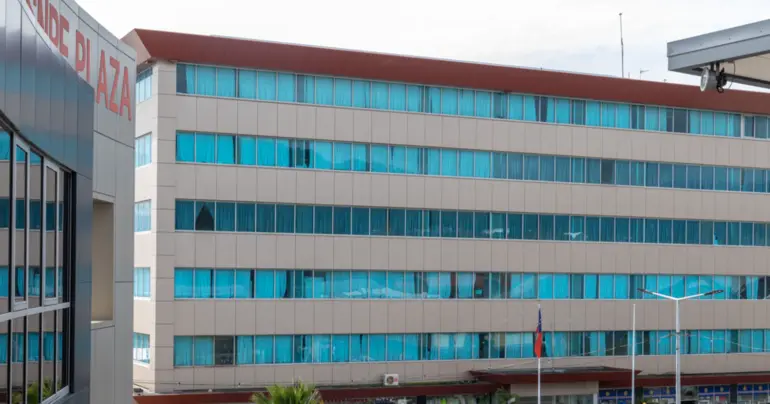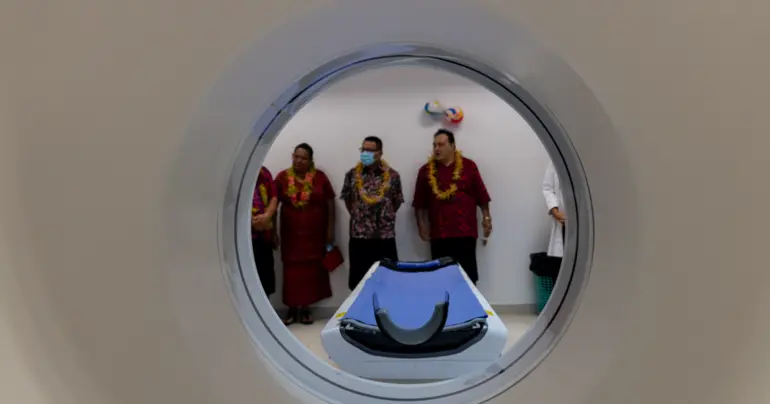Businessman Chen Pao fined $3,000
A businessman has been fined $3,000 for violating the Fisheries Act 1988, in relation to the harvesting of sea cucumbers.
Chen Pao, who owns the Treasure Garden Restaurant at Fugalei, appeared for sentencing before Supreme Court Justice Fepulea’i Ameperosa Roma, on Wednesday.
Justice Fepulea'i had presided over the trial when he was a Judge of the District Court in 2016.
Pao was found guilty of two charges of operating a fish processing establishment without a license, under the Fisheries Act 1988.
The charges arose out of a joint search and seizure operation for sea cucumbers involving the Fisheries Division of Ministry of Agriculture and Fisheries and the Maritime Unit of Ministry of Police on 2 February 2016 at two locations – the Treasure Garden Restaurant at Fugalei and the Treasure Garden Hotel.
Officers discovered quantities of sea cucumbers, some in bins, being applied salt, some on trays in a cooking oven which appeared to be in the process of drying. Some were already dried and packed in plastic bags and some were frozen in freezers.
The operation collected 11 bins of dried sea cucumbers, five boxes of the dried food items, a large green rubbish bin and a bucket full of species that were not fully dried. The total amount of sea cucumbers seized was 431 kilograms.
The dominant species harvested and processed by Pao was the Holothuria scabra, or sandfish.
“The evidence is that the main market for is a cucumbers is Asia and that according to a study by the South Pacific Commission the market value for processed sea cucumbers in Hong Kong is not more than $800 U.S. Dollars per kilo. Based on that value for 431 kilograms of processed species is not more than $344,800 U.S. Dollars,” said Justice Fepulea’i.
In relation to the offending, the aggravating factors were: firstly the detrimental impact on the environment and water quality of marine life
According to a Victim Impact Report from the M.A.F., sea cucumbers play an important environmental role in the ecosystem; they extract bacteria and some are responsible for bio fertilisation and oxygenation of sea life.
“Increased fishing and over harvesting means fewer reef areas retain sea cucumbers and densities high enough to reproduce successfully and the remaining adults are becoming too scattered to produce the juveniles,” he said.
The tragedy, Justice Fepulea’i noted, is that sea cucumbers fisheries have the potential to maintain water quality and as experienced in the Pacific, the fishery has declined and collapsed. In much of the region, sea cucumbers have become less productive.
Pao’s crimes have affected the resources in Samoa, Justice Fepulea'i noted.
The effect of illegally processing sea cucumbers has resulted in the Fisheries Ministry to seek technical assistance from regional partners to conduct the nationwide assessment on the stock of sea cucumbers. Funds that were earmarked for other developments were drained due to increased costs to monitor and survey fishing activities around the country.
Justice Fepulea’i said the amount harvested and processed by Pao was a large quantity – 431 kilograms. Some of the species collected were small in size and scale.
The fourth aggravating factor is that Pao collected the sea cucumbers for the purpose of gaining profit. He said the 431 kgs of processed sea cucumbers was worth not more than $345,000 U.S. dollars, citing it was “significant in value.”
The sentencing decision took into account that Pao is a first-time offender.
“I’m not aware of sentencing in the courts of Samoa for this type of offending,” Justice Fepulea’i said.
The defendant was represented by Semi Leung Wai.











